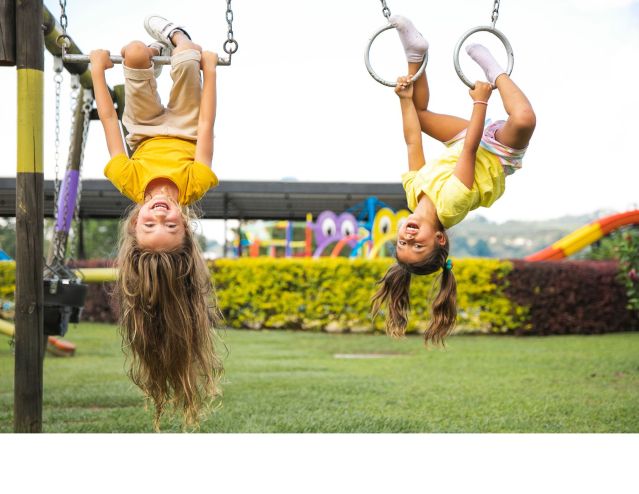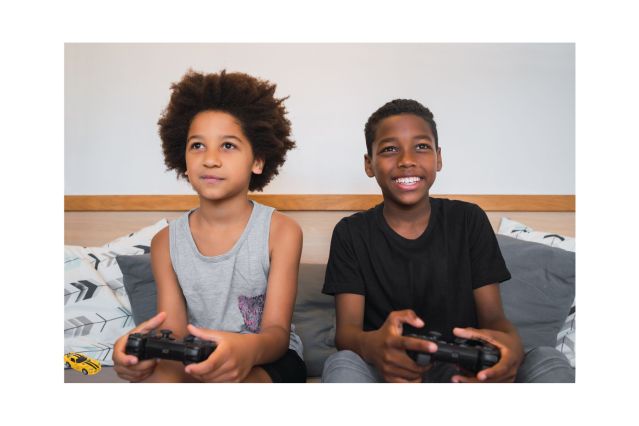A few weeks ago, a parent came to me for advice. It wasn’t a specific concern, it just wanted to discuss how best to structure the school year and how to process and act on the advice I received as a single parent of an elementary school boy. . She was told that she needed to participate in as many activities as possible with other parents and the school community and involve her son in multiple after-school activities, including frequent playdates. She felt overwhelmed. This is the advice I shared. In a nutshell, make sure you have playdates and do whatever other activities she wants.
Source: Pablo Marchand/Studio Colombia
The importance of playdates
I emphasized that playdates are especially important for children, especially elementary school students. This is something I often recommend to parents. Opportunities for free and independent play were declining long before COVID-19. Activities that children once engaged in purely for fun, such as playing sports, have become more structured, competitive, and adult-driven. Today, “playing a sport” often means joining a league team, working with a coach, and competing for trophies. There are very few planned holidays from school like there used to be.

In contrast, truly unstructured play creates a space for children to connect with each other in ways that differ from the structured and supervised environments of school and organized activities. It promotes independence and helps children develop important social skills such as reading body language, considering other people’s points of view, collaboratively choosing activities, switching gears, resolving misunderstandings, and repairing conflicts. so that you can practice. These small daily negotiations foster children’s sense of social competence.


Source: Pablo Marchand/Studio Colombia
Free play also fosters creativity, problem solving, and social intelligence. Children invent games, work on their own, learn how to read their peers, compromise, take a point of view, and forgive. They practice apologizing and repairing friendships when conflicts occur. These are not innate abilities and, like any skill, require a lot of practice.
Opportunities to develop these skills may be limited for children who have no siblings or a large age gap between them. In these cases, peer play becomes even more important. Unfortunately, technology such as the iPad often replaces these interactions. Although this type of solitary stimulation is immediately engaging and non-confrontational, whether in elementary school, middle school, or high school, this type of solitary stimulation is often used to develop the interpersonal skills necessary to navigate the social world of school. It is of little use for development.


Source: Nicolas Menijes/Canva for Education
Social benefits of playdates
Playdates not only hone social skills, but also allow other children to get to know your child better. Misunderstandings and conflicts occur because we don’t know the other person well enough to give us grace when their behavior differs from our expectations. When children play together regularly, a foundation of familiarity and trust is built that helps minimize and resolve such conflicts.


Source: Alexander Kichigin/Canva for Education
How to make a playdate happen
Arranging a playdate doesn’t have to be complicated or time-consuming for busy parents. Even just 10-15 minutes of effort at the end of the day can make a difference. If you can pick up your child one day a week, team up with another parent for a short, casual play session. Whether or not the other parent is there, these times create an opportunity for your child to socialize with friends in a relaxed environment.


Source: Moshehar/Pixabay
If the other parent is present, the advantage is that they can chat while discreetly keeping an eye on the children, intervening only when necessary. These interactions benefit not only the child but also you as a parent. When other parents and children know about your child, misunderstandings are less likely to escalate, and you are also more likely to have more understanding and forgiveness when mistakes inevitably occur. There is. Additionally, you may be able to find out what’s going on at school if you’re not really participating in other activities going on.


Source: Andresr/Getty Images Signature
In short, playdates aren’t just fun, they’re an investment in your child’s social and emotional development, with huge benefits in building trust, connection, and social skills.

